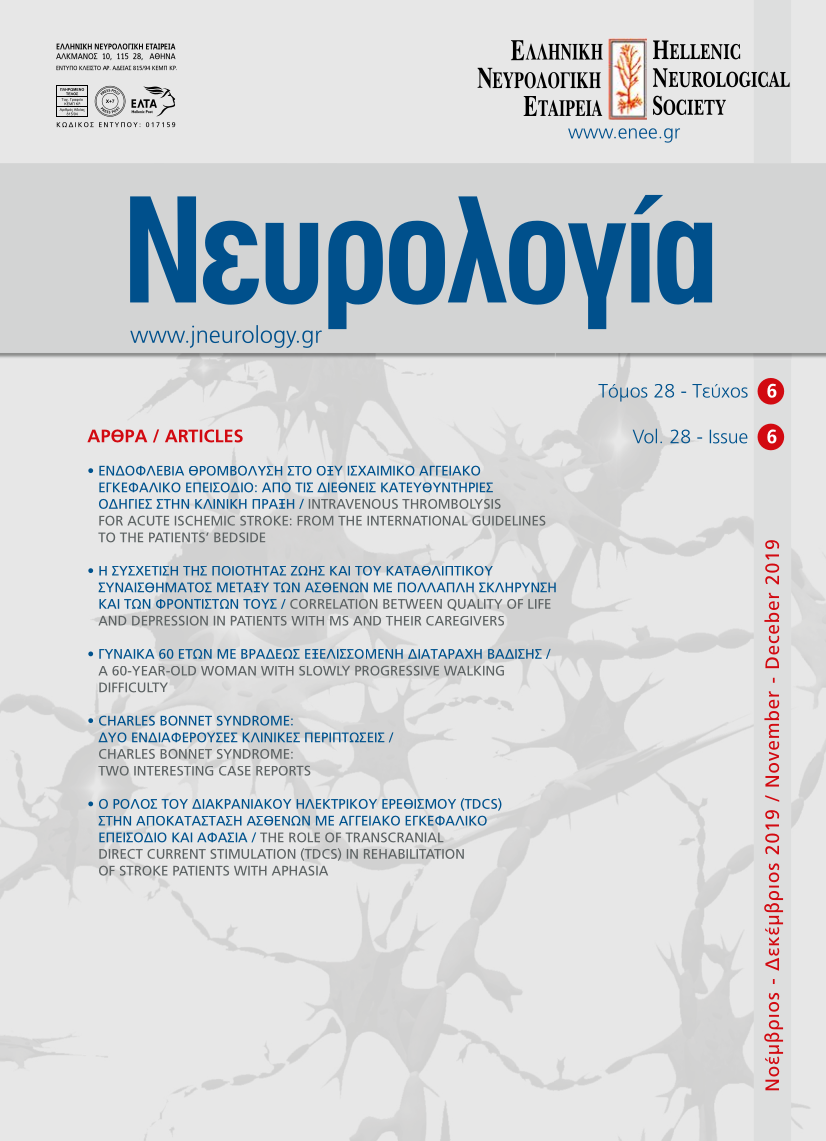CORRELATION BETWEEN QUALITY OF LIFE AND DEPRESSION IN PATIENTS WITH MS AND THEIR CAREGIVERS
Keywords:
multiple sclerosis, patient disability, caregivers, quality of life, depressionAbstract
Background and Purpose: To evaluate depression in a sample of multiple sclerosis (MS) patients and their respective caregivers and to investigate the impact of caregivers’ depressive symptoms to the patients’ ones and vice versa. Methods: We included the study 94 MS patients and their caregivers. The disability status of the patients was assessed using the EDSS (Kurtzke Expanded Disability Status Scale).The quality of life was assessed using the SF36v2 (36-item Short Form Health), while depression was assessed using the HAM-D (Hamilton Scale for Depression). Results: Depression in caregivers of MS patients was negatively correlated with educational status and positively with female sex. In multivariable linear regression analysis patients’ depression was inversely correlated with education level (coefficient = -1.88; 95% CI -3.16, -0.61; p = 0.004) and positively with the patients’ disability (coefficient = 1.04, 95% CI: 0.49, 1.59; p < 0.001). Opposed to caregivers, patients' depressive symptoms were independently correlated to the caregivers' ones (coefficient = 0.29; 95% CI: 0.11, 0.47; p = 0.002). Conclusion: Caregivers’ depressive symptoms, which seem to have a negative impact on patients’ depression should be carefully monitored and treated, because together with burden and caregivers' psychological difficulties can affect negatively their supportive role while increase patients' depressive symptoms with negative impact in their quality of life and adjustment to MS.


